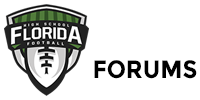Crossover coaches speak out - Is economics the real problem?
-
Posts
-
Theoretically -- great. Just have to get around those pesky school choice/school voucher state laws.
-
By Longtime Observer · Posted
Yeah, I think seeing the game disappear from maxpreps caused me to overreact. I know the Tornadoes are coming and they're coming to win. I just hope we don't let 'em -
By cribboy305 · Posted
Ok I was gonna say. I had talked to my lil brother & he said they was still heading up there despite rumors. Good stuff, the T aint ducking no smoke -
By Longtime Observer · Posted
Idea: make recruiting legal for all schools AND enforce a full year of sitting out for transfers. So, you can recruit the middle school kids-ok, the parents- all you want. But, transfers aren't worth sweating over because they'll have to sit a year out, effectively ending senior year transfers. -
By Longtime Observer · Posted
shocking if true. Just goes to show you that, in an era of unlimited transferring with instant eligibility, ANY program could go from great to awful- and vice versa- in the blink of an eye. There almost aren't any real PROGRAMS left. No one is sticking around long enough to be developed in the specific ways of a program. It's terribly sad.
-
-
Who's Online (See full list)
-
Popular Contributors
-
1
-
2
-
3
-
4
-
5
-








Recommended Posts
Join the conversation
You can post now and register later. If you have an account, sign in now to post with your account.